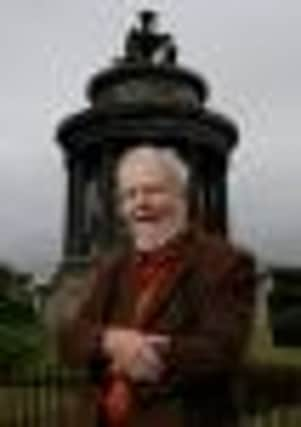Obituary: Dr G Ross Roy, energetic and generous academic who helped modern Scottish literary study to flourish


The death of G Ross Roy (“Ross” to generations of friends and correspondents) brings to an end a long and fruitful career of scholarship and editing which substantially advanced the rise of modern Scottish literary study. Ross Roy spent most of his academic career at the University of South Carolina at Columbia, SC, where he was to build up an extraordinary library collection which draws scholars from all quarters.
Rich in Burns books and manuscripts (many of them donations from Ross himself, many more sourced by him on innumerable trips to rare book sales), it also has the extraordinary Rodger Tarr Carlyle collection – among much else which attracts scholars from all over, many of them helped by the W Ormiston Roy Memorial Fellowship which Ross established with his wife Lucie in memory of his parents.
Advertisement
Hide AdAdvertisement
Hide AdHe was born in Montreal where he spent much of his youth and early education, teaching also in Alabama and Texas before establishing his scholarly base in Columbia where his home was to receive hospitably many visiting scholars.
He met Lucie in Strasbourg when he won a scholarship to study at the university there.
Together they worked tirelessly to establish and then to publish (for almost half a century) the scholarly Studies in Scottish Literature, which for a long time was the only substantial refereed journal in the field.
A roll call of famous names is found in its contents pages, and happily it will outlive its creator as an electronic journal in the hands of his collaborator and friend Patrick Scott, himself a Distinguished Professor of English Emeritus at Columbia (and formerly a lecturer in English at the University of Edinburgh).
Studies in Scottish Literature had a wide coverage of every period, and its spread through libraries was to enable Scottish literature to achieve a scholarly recognition which owes a great deal to Ross Roy’s pioneering energy.
As a book collector he was tireless and very successful, and his own library (much of which has been unselfishly donated to his university) was extraordinary. He took justifiable pleasure in showing it to visitors, and he regularly crossed the Atlantic to find more, and to add to his stock of knowledge.
The 1985 edition of The Letters of Robert Burns in two volumes from the Clarendon Press, updating J De Lancy Ferguson’s earlier 1931 edition, was one of the outcomes, and it has been the standard work for years.
Ross died too soon to see the monumental work of re-editing all of Burns at Glasgow reach completion, though he was a frequent visitor to the English department there; indeed, he was an honorary Professor of Scottish Literature.
Advertisement
Hide AdAdvertisement
Hide AdHe was honoured by doctorates from both Glasgow and Edinburgh, and received recognition in many other awards. The annual Ross Roy medal for the best doctoral dissertation in Scottish studies will continue his memory for many years.
Both Ross and Lucie were generous and welcoming figures to the many who came to see the university, its library and indeed Ross’s own library.
His sense of humour was ever present, and he could enjoy every side of Burns’ output, in particular relishing the ownership of spectacularly explicit illustrations to some of the bawdier poems – but then he knew them well, and in 1999 published his own edition of the Merry Muses.
He lectured with the authority of a lifetime’s careful study, and with a width of reference which bore witness to earlier studies in France (a doctorate from the Sorbonne) and a lifetime of visits to that country to friends and family.
Those who submitted their typescripts to Ross Roy received careful editing and constructive criticism, and there was a sense of humour underlying all.
Most of all, through his editing, his sustaining of the journal, his building of a major scholarly library, he built the momentum which has seen in modern times other journals and associations to promote Scottish literature, and other outlets for publication.
He made it possible for those who write on Burns and speak on him in public to have access to the surviving letters in modern, reliable form, and he has made Columbia a centre for visiting scholars which will sustain what he made possible. As Studies in Scottish Literature finds a new role on the internet, its reach will be ever wider, and this would have given him great satisfaction.
Roy is survived by his wife, Lucie. Their daughter, Madeleine C Roy, predeceased him.
Ian Campbell